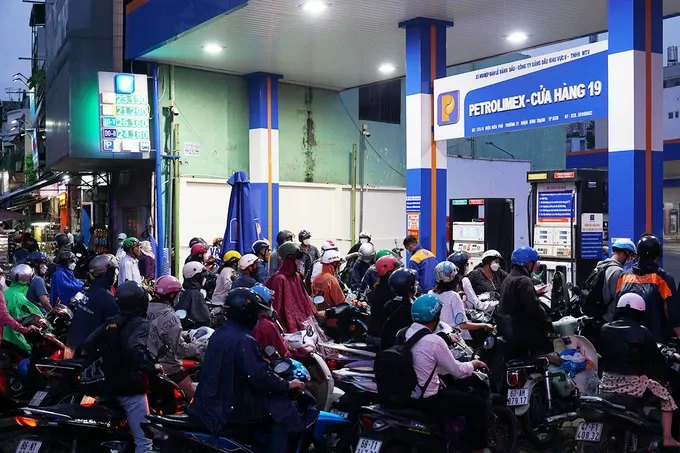
As per regulations, the FPSF is separately accounted for by fuel wholesale traders through an account opened at the bank where the wholesale trader conducts transactions. These businesses are responsible for opening the account, making deposits, and handling all transactions related to the fund. They are subject to post-audit and supervision from regulatory authorities.
However, some businesses have reported financial difficulties during the Covid-19 pandemic, requiring them to borrow money to meet the fund's requirements. “With the FPSF deposited in the bank, we earn interest. But when the fund is in deficit, businesses have to borrow to cover the shortfall. This is especially challenging during times like the pandemic when we had to import reserves at high prices but sell at lower prices, leading to significant losses,” shared a petroleum business.
In reality, during the Covid-19 pandemic, up to 7 fuel wholesale traders misused the FPSF, failing to transfer money to FPSF accounts and instead keeping nearly VND7.9 trillion (US$313 million) in their business payment accounts.
With the FPSF in businesses’ hands, there were cases of “acting arbitrarily”, even withdrawing funds for use when cash-strapped. Notable violations in FPSF usage include cases like Xuyen Viet Oil, Hai Ha, Thien Minh Duc... which have been clarified by functional agencies in recent times.
Leaders of some petroleum businesses commented that the FPSF essentially takes money from consumers to subsidize the businesses themselves, akin to robbing Peter to pay Paul.
“The nature of the FPSF is vastly different from local government market stabilization programs. Perhaps, we could have a rule stating that when fuel prices exceed VND25,000 ($1)/liter, the FPSF is used immediately to provide subsidies of VND1,200-1,500 ($0.05)/liter. This would make consumers feel the benefits of the fund. Currently, the subsidies are minimal,” expressed a business leader.
Economic expert Assoc Prof Dr Ngo Tri Long observes that there are still many conflicting opinions about whether to maintain or abandon the FPSF. State agencies believe it should continue to exist, while fuel trading businesses, consumers, and many economic experts suggest considering its abolition. If this fund is abolished, the domestic fuel market would operate according to market mechanisms and gradually approach global fuel prices.
Legally, abolishing the FPSF does not violate either the 2012 or 2023 Price Laws. With the current 7-day price adjustment cycle, price fluctuations between adjustments are minimal.
“In recent adjustment cycles, the authorities have hardly withdrawn or contributed to the FPSF, yet the market remains stable. Given the presence of 30 petroleum wholesale businesses, nearly 400 distribution businesses, and two domestic refineries, the supply is secured, and the distribution system is strengthened. Therefore, the role of the FPSF is no longer as necessary as before,” said Assoc Prof Ngo Tri Long.
Additionally, many believe that abolishing the FPSF would address issues related to management and usage by businesses, as well as transparency and oversight. Director Giang Chan Tay of Boi Ngoc Co noted that abolishing the FPSF would allow fuel prices to accurately reflect market prices. While the FPSF’s role in price regulation is minimal and its impact on the market is insignificant, it does not accurately reflect the market’s nature.
Recently, the Ministry of Finance publicly detailed the provision and usage of FPSF by fuel trading merchants for Q2-2024:
- The beginning FPSF balance was VND6.08 trillion ($240 million);
- The ending balance was nearly VND6.06 trillion ($239 million).
The FPSF balance of each major fuel wholesaler is as follows:
- Petrolimex: VND3.08 trillion ($121.5 million);
- HCMC Petroleum One Member Co. Ltd.: VND328 billion ($12.9 million);
- Military Petroleum Corp - One Member Co. Ltd.: VND299.7 billion ($11.8 million).
At a recent session, when questioned about the stance on maintaining or abolishing the FPSF, Minister of Industry and Trade Nguyen Hong Dien said that in principle, he agrees to consider abolishing the fund in the future to ensure market characteristics.
However, it must be understood that the FPSF is essentially extra-budgetary, contributed by consumers and entrusted to wholesale enterprises for collection and deposit into bank accounts. In the new draft on fuel trading that the Ministry of Industry and Trade has submitted to the Government for consideration, the FPSF must be maintained in the short term.
























